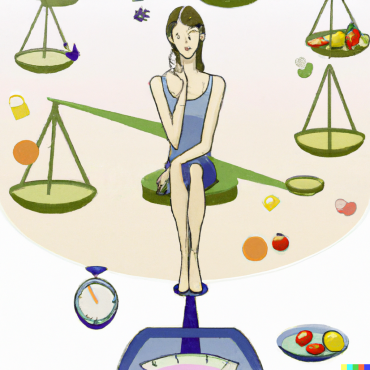We are all affected in different ways by the passage of time. By the age of 50, many developments and changes are likely to have taken place (for example your children leaving home) which can take a mental toll. Discussing these challenges through online peer counseling for women can be highly supportive and beneficial.
Challenges that women over 50 may face
1. Empty nest syndrome
Empty nest syndrome is a term used to convey a mother’s grief once her child(ren) leaves home. It is more prevalent in women as they are typically the primary carer. This type of grief tends to go largely unobserved because children leaving home is perceived as a routine life activity.
Scientific studies have revealed some mothers are more susceptible to empty nest syndrome. Reasons for this can include, but are not limited to
- She has an unstable marriage, and her children were her primary source of support and comfort.
- Change makes her stressed rather than happy or rejuvenated.
- She is a single parent.
- She doesn’t believe her children are ready to be released into a world filled with uncertainties she cannot control.
Grief
The loss of a loved one such as a child and/or partner can trigger overwhelming grief and loss. It’s so personal and manifests itself in many different ways that it needs to be spoken about and nurtured carefully.
Retirement
A significant portion of a woman’s life may be dedicated to her profession. It gives her a sense of purpose, and it can be an important part of her self-identity. Suddenly, once she retires, it’s gone. With no more responsibilities or accountability, a sense of loss can occur. This leaves her struggling to comprehend her actual value. Another potential reason for depression is the fact that the dynamics at home are changing.
Anxiety
As mentioned above, empty nest syndrome can cause anxiety in a mother, but anxiety is the body’s natural response to any type of stress from a holistic perspective.
Symptoms of general anxiety include:
- Increased heart rate
- Rapid breathing
- Restlessness
- Trouble concentrating
- Difficulty falling asleep
It’s a good idea to build a strong social support community. Family, friends, and people nearby that you trust are incredibly valuable; you can turn to them when you feel anxious. They can also assist you to identify particular situations that trigger anxiety and help you avoid them. In these times when families are spread across the world, peer counseling can also meet the need to support you during difficult times.
Depression
It’s essential to understand the difference between anxiety and depression – these two mental health problems are not the same.
Anxiety is a general nervousness about what is going to happen or could possibly happen in the future (also known as anticipatory anxiety). There are numerous anxiety disorders that can stem from a variety of factors; however, they are typically characterised by thoughts of worry and a widespread belief that something is (or will) going wrong.
Depression, on the other hand, is a feeling of sadness. Many people who suffer from depression have a general sense of hopelessness and purposelessness. Depressed individuals are listless, and often dwell on negative emotions.
Depression and anxiety are however not mutually exclusive. Depression can often lead to feelings of anxiety which in turn can exacerbate your overall feelings of despondency if it is not dealt with.
What is peer counseling?
Peer counselors are ordinary people who happen to have certain personality traits, such as high levels of empathy. They have an inherent ability to understand, connect and empathise with your circumstances.
Peer counseling is available immediately and costs much less than therapy.
They are taught the vital skills of active listening and practical problem-solving. They can offer valuable advice that you can use in real-life social situations. Also, you have the peace of mind that your conversations are kept entirely confidential.
























































Comments